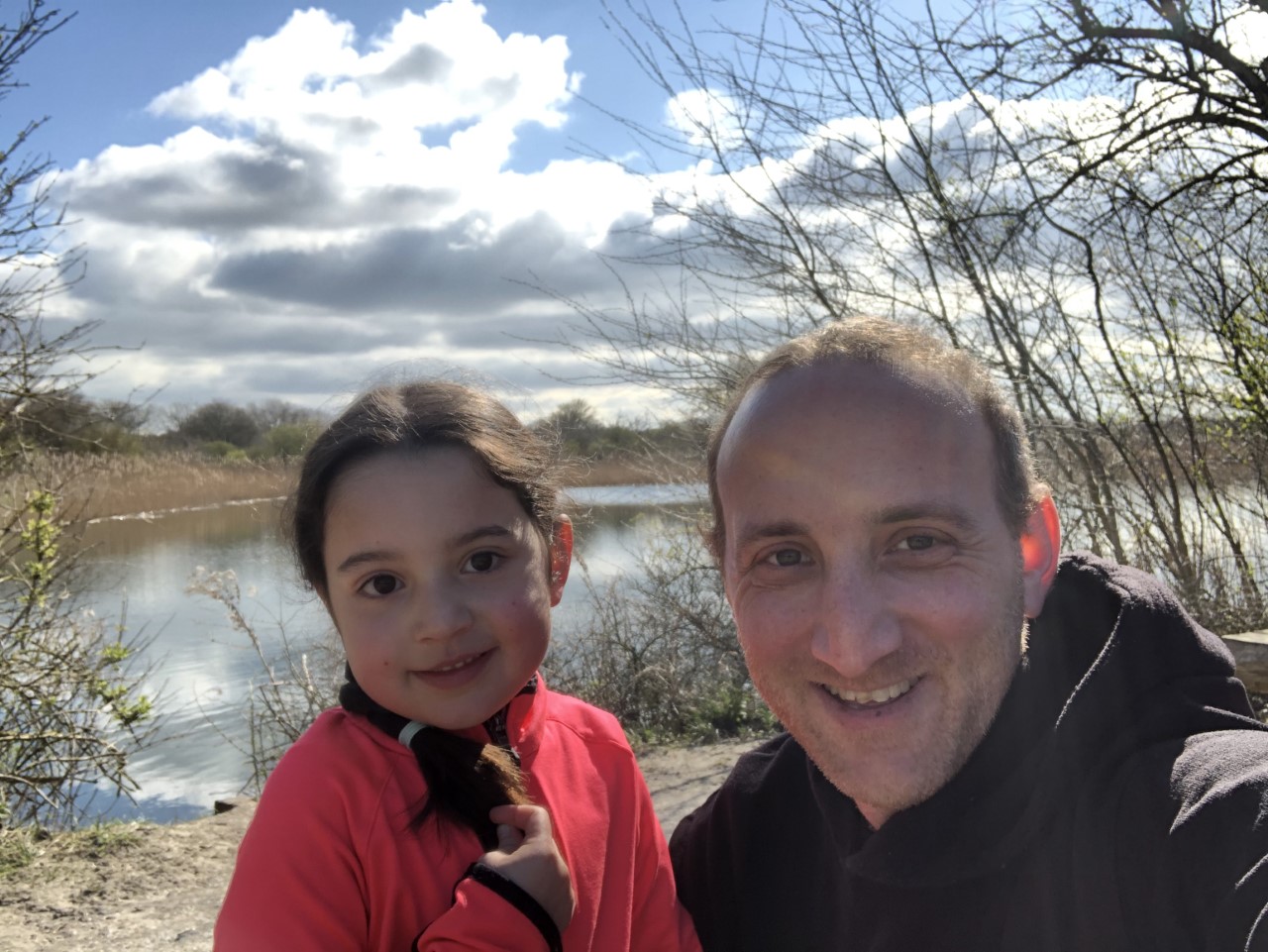What I learned about behavioural science when I became a dad
And how I often failed to parent the way I imagined I would
And how I often failed to parent the way I imagined I would
 Photo: Courtesy of Michael Feigelson.
Photo: Courtesy of Michael Feigelson.
Early Childhood Matters 2022 is a unique
contribution to answering the question, “How to apply behavioural science in early childhood?” It covers a wide range of topics: promoting reading to kids, teaching coaching techniques to healthcare workers, the role of new technologies in changing behaviour, the importance of humour and joy, turning public spaces into parenting places, how simplifying bureaucracy can change parents’ lives.
As the CEO of the Bernard van Leer Foundation, an organisation that invests in using behavioural science to make early childhood policies more effective, I was asked to share my own thoughts.
To write an honest article, I had to start by reflecting on my experience as a father. Why – despite spending my working hours immersed in the latest science and talking to the world’s best early years experts – did I still fail on so many occasions to parent the way I imagined I would?
What happened next? I put off writing the piece for a month, sharing a draft several weeks past my deadline. Between my paid job and my caregiving responsibilities my responsibilities, it’s been difficult to find the time for this kind of reflection. That’s what I told myself, but maybe there was also another reason…
With all my knowledge about child development, I planned to be the dream partner during Melania’s pregnancy, but it was a very stressful period at work. I was physically present doing the things I was supposed to do, but my mind was constantly wandering. Combined with a difficult first trimester, my wandering mind caused a lot of tension at home. Both of our perspectives on pregnancy quickly shifted from a romanticised idyllic to embattled cohabitation. My own role went from a model 21st-century supportive partner to a preoccupied, defensive husband.
After our daughter Mila arrived, practising all the positive parenting behaviours I knew were important also proved difficult. An example: I wrote an article suggesting companies should include messaging on diapers to remind parents to talk to their babies. The moment when a parent changes a diaper was a perfect time to nudge them to tell a story. Yet I would regularly find myself finishing the task and realising I had completely forgotten to talk to Mila. Usually the culprit was exhaustion. No one was getting much sleep. I felt like a zombie and changed diapers like one too.
“After our daughter Mila arrived, practising all the positive parenting behaviours I knew were important also proved difficult.”
Another example: at age 3, Mila got very sick and spent 10 days in the hospital. The only thing that would keep her calm was the iPad. Today, at 8 years old, she is very healthy, but we never broke the habit. Despite having easy access to the best thinking on screen time from the American Academy of Pediatrics, we continue to let her watch more than we should on an almost daily basis. Why? At first, we were chronically tired, we needed a break, and this was the easiest way to get one. Then came Covid and it became a survival mechanism so that we could work from home. With each passing year the behaviour became more engrained and harder to change.
Finally, there is the subject of patience. If there was one characteristic that reflected the art of fathering when practised as its best, I thought it was patience. Listening. Respecting the child’s voice.
As educators early in our careers, Melania and I were trained to put these principles into practice. When we became parents we wanted to embody them. We have dedicated a lot of energy to this, but at a cost. When parenting feels like a never-ending negotiation with your child, patience wears very thin. As a result, I’ve lost my temper on more occasions than I like to admit.
One of the most common mistakes in early childhood programmes is to assume that the problem is knowledge; that if parents and caregivers know more, they will behave differently. But, as I’ve tried to illustrate, knowledge is not enough.
To be effective, programmes need to first recognise that parents and caregivers are chronically busy and tired. They need to be designed with an understanding of the constraints this puts on the cognitive space required to learn and practise new behaviours.
Second, programmes should nudge, but not judge. The real reason I procrastinated in writing this article is that in my community, social norms around parenting make it hard to admit mistakes. There is a lot of pressure to do the job perfectly and strong ideas about what ‘perfectly’ entails. In other cultures, the norms will be different, but the principle remains the same. Programmes need to understand the social norms guiding parents as these will shape what is possible and what is not.
For parents and caregivers, early childhood is beautiful, but also chaotic, stressful and messy. We inevitably make mistakes on a daily basis and are inclined to judge ourselves and others with a fierceness reserved for few other parts of life. Once we recognise these realities, behaviour change gets easier.
See how we use your personal data by reading our privacy statement.
This information is for research purposes and will not be added to our mailing list or used to send you unsolicited mail unless you opt-in.
See how we use your personal data by reading our privacy statement.